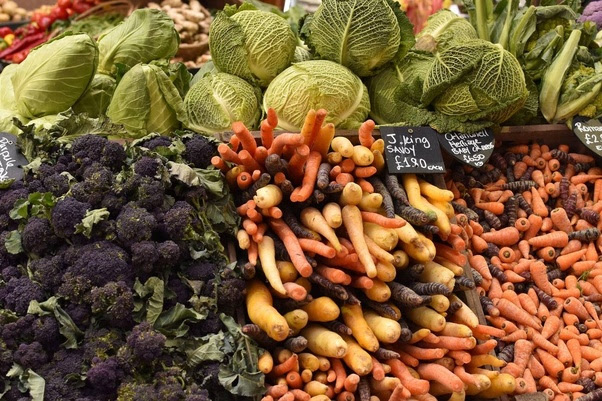
While no single food can outright prevent or cure cancer, a diet rich in certain foods can help reduce the risk of developing cancer and support the body during treatment and recovery. The "perfect" anti-cancer diet would emphasize a variety of nutrient-dense, whole foods known for their cancer-protective properties.
Cruciferous Vegetables: Foods like broccoli, cauliflower, Brussels sprouts, and kale are known for their high levels of sulforaphane and indoles, compounds that are believed to help prevent cancer cell growth.
Detoxification Support: These vegetables support the body's detoxification processes, which may reduce the risk of certain cancers.
Berries: Blueberries, strawberries, raspberries, and other berries are packed with antioxidants such as vitamin C and ellagic acid that can protect cells from damage.
Antioxidant Power: The vibrant pigments that give berries their colors also represent a variety of phytochemicals that have anti-cancer properties.
Leafy Greens: Spinach, chard, and other greens are rich in folate and carotenoids, which have exhibited protective effects against certain types of cancer.
DNA Repair and Maintenance: Folate plays a role in DNA synthesis and repair, potentially reducing the risk of cancer caused by DNA mutations.
Fatty Fish: Salmon, mackerel, and sardines are high in omega-3 fatty acids, which are linked to a reduced risk of cancer, particularly colon, prostate, and breast cancer.
Anti-Inflammatory Effects: Omega-3 fats have strong anti-inflammatory properties that may help prevent the development and progression of cancer.
Whole Grains: Foods such as brown rice, quinoa, and whole wheat contain fiber, which can help protect against colorectal cancer.
Fiber and Micronutrients: Fiber enhances digestive health and may help to bind and eliminate carcinogens from the gut.
Legumes: Beans, lentils, and peas are also high in fiber, as well as saponins and protease inhibitors, which could protect against cancer.
Plant-Based Proteins: The reduced reliance on red and processed meats, which have been linked to higher cancer risk, can be advantageous when including more legumes in one's diet.
Garlic and onions: These and other allium vegetables have been associated with a lower risk of stomach and colorectal cancer.
Sulfur Compounds: The sulfur-containing compounds that give these vegetables their characteristic smell may also inhibit carcinogen formation.
Green tea is rich in polyphenols, especially catechins, which have been shown to slow the growth of some tumors.
Metabolic and Immune Support: Beyond antioxidants, green tea may influence cancer cell metabolism and support immune system function.
Turmeric: This spice contains curcumin, which has been studied for its anti-inflammatory and anti-cancer effects.
Cell Cycle Regulation: Curcumin has shown the potential to affect cancer cell cycle regulation and induce apoptosis in laboratory studies.
Nuts and Seeds: Especially flaxseeds, chia seeds, and walnuts, which contain lignans and omega-3 fatty acids that could have anti-cancer benefits.
Hormonal Balancing: Certain seeds, like flax, contain phytoestrogens that may influence hormone-related cancer risks.
These foods are not a complete cure or guaranteed prevention, but incorporating a variety of them into a balanced diet can contribute to overall health and may help lower the risk of cancer. It's also important to note that diet is just one aspect of cancer prevention and should be combined with other lifestyle modifications, such as maintaining a healthy weight, exercising regularly, avoiding tobacco, and limiting alcohol intake.
For individuals who are undergoing cancer treatment, specific dietary needs can vary widely, so it's crucial to consult healthcare professionals for personalized nutritional advice.
www.quora.com

